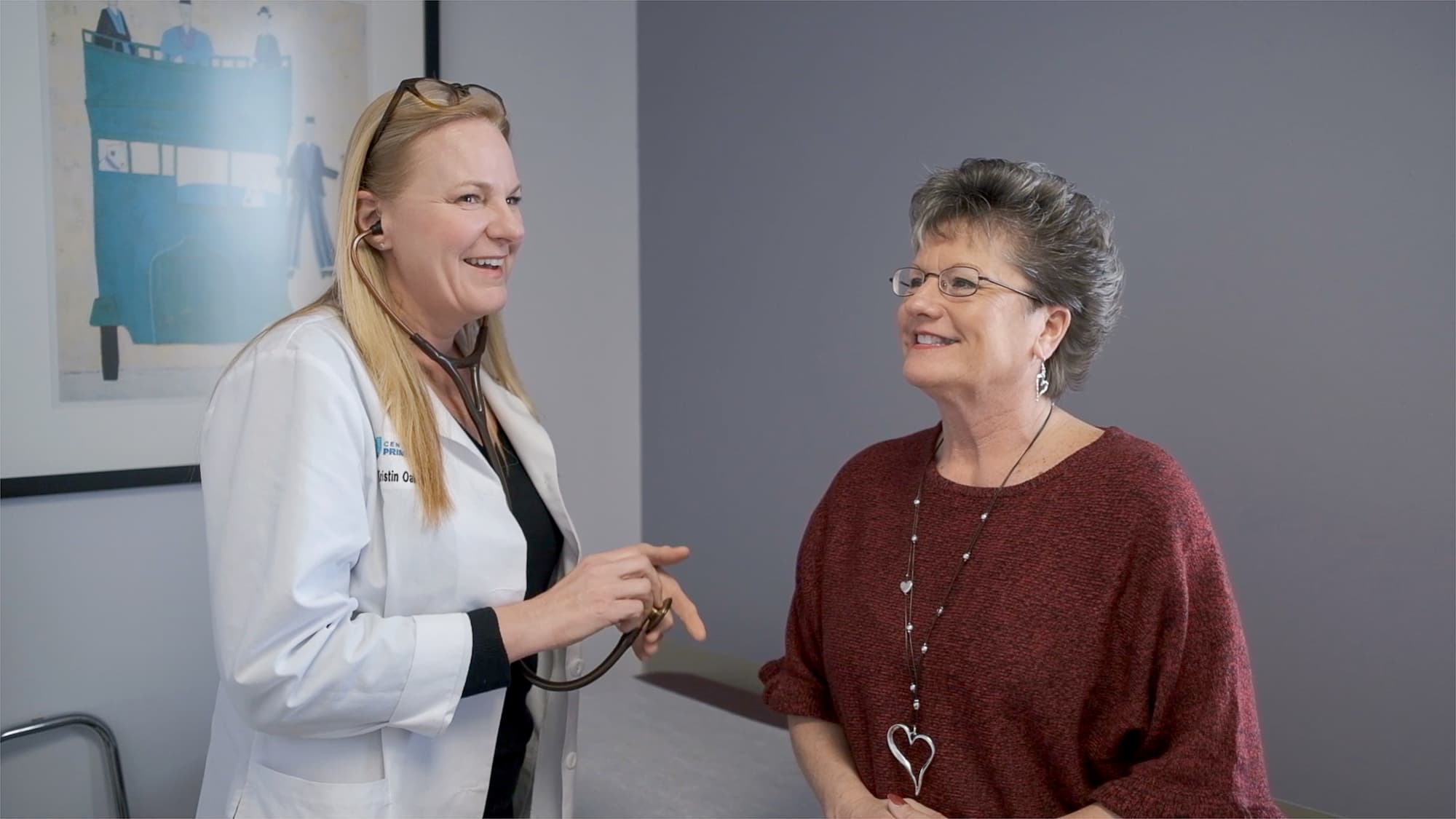As a physician, you know that when a senior patient is discharged from the hospital, their journey to recovery is far from over. Ensuring that they are engaged in post-discharge follow-up care is of paramount importance, especially for seniors with complicated medical histories. Effective follow-up care can have a profound impact on a patient’s health outcomes and overall satisfaction, and is a hallmark of value-based care (VBC) and agilon’s full-risk, Total Care Model.
In this post, we’ll look at the strategies, tools, and measures that health care providers can employ to foster optimal patient engagement during this crucial phase.
The Importance of Patient Engagement in Follow-Up Care
Patient engagement is pivotal for achieving both patient satisfaction and a positive patient mindset. When patients are engaged, they are more inclined to follow their care plans diligently, which inevitably leads to enhanced health outcomes, fewer hospital readmissions, and a satisfying patient experience. Active participation from patients not only fosters a collaborative rapport between health care providers and patients but also facilitates improved overall health. agilon health is dedicated to helping physician partners effectively increase patient engagement and efficiently deliver follow-up care.
Delivering Great Follow-Up Care
An optimized patient experience requires an investment in building a relationship with a focus on trust, compassion, and effective communication. Providers who actively listen to their patients, comprehend their concerns, provide information in easy-to-understand language, and actively involve patients in decision-making are more likely to deliver care that aligns with the patients’ needs and expectations. Further, emphasizing continuity of care through meticulous coordination with specialists ensures that patients receive consistent and top-notch care throughout their health care journey.
agilon health helps empower primary care physicians (PCPs) to deliver superior follow-up care that markedly benefits senior patients. Based on the 2022 Impact Report, more than 358,000 senior Medicare members are engaged in a total-care relationship with an agilon physician partner. Their feedback shows that 95% feel that the care they receive is comprehensive and of high quality.
Strategies to Improve Patient Engagement in Follow-Up Care
The agilon Total Care Model allows the PCP to focus on the entire health of their patients. Patient engagement in post-discharge follow-up care can be bolstered using a variety of strategies tailored to individual needs and technological advancements.
Clear Communication Channels
Clear and open communication is foundational to effective follow-up care, providing the support and connection that patients need during their recovery. This communication can be efficiently facilitated through various tools, including phone calls, emails, patient portals, and secure messaging platforms. These platforms not only enhance the communication process but also build trust, ensuring patients have immediate access to essential information.
When a patient is discharged from the hospital, they are often provided with medical directives including preventative measures and lifestyle changes. Adopting these is significantly influenced by their relationship with their doctor. If the doctor-patient relationship isn’t strong, patients are less likely to follow medical advice. But with patient-centered care, which is central to VBC, physicians are able to devote adequate time to address each patient’s concerns, answer their questions, and meet their unique needs.
“When patients would come out of the hospital and come to my office, I would struggle with my EMR to get the hospital discharge summaries,” explains Dr. Gurneet Kohli, an agilon health physician partner at Premier Family Physicians in Austin. “Now I have agilon nurses who get the hospital records before the patient visit. I know exactly what happened in the hospital instead of trying to piecemeal it with the patient or trying to fight with the hospital’s EMR to get those records. These are the small things that add up to providing a more comprehensive care for my patients.”
“Not everyone has the same level of education, and I am aware that not everyone I see will understand what I tell them,” Dr. Natalie Williams, an agilon health physician partner at the Austin Regional Clinic in Austin, concludes. “I don’t want my patient to misunderstand what I say and be too embarrassed to ask questions. So, it’s important to take time to explain information in the simplest terms possible so each patient understands what you’re saying.”
Personalized Care Plans
No two patients are the same. Care plans tailored to accommodate a patient’s distinct health needs and preferences not only facilitate better adherence but also yield improved results. Engaging patients in the discharge planning process and follow-up care is crucial. This inclusive approach fosters shared decision-making and goal setting, creating an environment where patients feel both valued and heard.
But what does this personalized approach look like in practice? Let’s look at a case study from Dr. Jeffrey Dunkelberger, an agilon health physician partner at Family Practice Center in Selinsgrove, Pennsylvania, to gain insight into how personalized care plans can make a difference in a patient’s life.
Dr. Dunkelberger recalls a patient he had – a 75-year-old male suffering from congestive heart failure due to ischemic cardiomyopathy and COPD, which had developed as a result of years of smoking. This patient would frequently accumulate fluid, leading to recurrent hospitalizations. Dr. Dunkelberger recognized the need for a more proactive approach to his care.
To address this issue, Dr. Dunkelberger proposed monthly follow-up appointments. The patient agreed, and this decision turned out to be transformative. The patient, who had previously been in and out of the hospital every six to eight weeks, suddenly saw a significant improvement. He went for over four years without needing another hospitalization, leading to a significantly improved quality of life.
“I don’t think it was just me being able to put eyes on him,” Dr. Dunkelberger reflects, “but I think it also held him more accountable to take his medications and be more compliant with his treatment.”
Patient Education
An informed patient is an empowered one, actively engaged in their health management. Providing clear and understandable health information around follow-up care is vital. Tailored educational resources that use straightforward language, visual aids, and interactive engagement can significantly bolster a patient’s health literacy and the likelihood they will follow through on their post-discharge care plan.
“I’ve seen firsthand how stress, improper diet, and lack of adequate sleep and exercise can worsen a patient’s health,” Dr. Jay Zdunek, former Chief Medical Officer at Austin Regional Clinic and currently agilon’s VP of Clinical Partnerships says. “And how changing behaviors and addressing environmental challenges can improve it.” Through raising awareness among patients about the impact of behavioral and environmental factors on health, individuals can be empowered to take control of their health and destiny.
Measuring and Evaluating Patient Engagement in Follow-Up Care
To ensure the effectiveness of implemented strategies, it’s crucial to measure and evaluate patient engagement meticulously. Tracking engagement metrics and outcomes allows health care providers to fine-tune their approaches to patient engagement for optimal results.
Health care analytics – including enterprise data warehouse (EDW) and patient experience application technology – make it possible for physicians to identify significant correlations between patient experiences and clinical outcomes. However, patient experience data isn’t limited to providing insights into just the patient experience or a single episode of care. When employed correctly, analytics can reveal a broader narrative. That’s why agilon’s technological applications are created to delve deep into patient experience data, analyzing it by provider, location, patient demographics, comment category, and sentiment. This comprehensive analysis aids in painting a more complete picture of the patient experience and informing strategic adjustments to improve care.
Create a Better Follow-Up Process With the Help of agilon
The key to superior post-discharge care lies in communication, personalized care plans, and patient education. With agilon’s Total Care Model, physicians are empowered to deliver effective, coordinated follow-up care that improves patient outcomes and satisfaction.
Learn more about agilon health and our unique partnership.
Contact for media enquiries
[email protected]Up Next.

Blog Dec 04, 2023
Identifying High-Risk Patients in Value-Based Care
Learn how VBC can help identify high-risk patients at agilon health.




